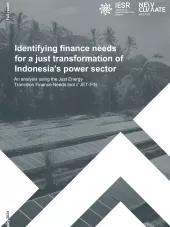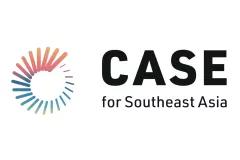Indonesia announced a Just Energy Transition Partnership (JETP) with the G7, Denmark and Norway at the G20 summit, hosted in Bali in November 2022. This agreement – modelled on a similar initiative in South Africa – mobilised an initial $20 billion in finance from donor countries and private banks to support decarbonising Indonesia’s power sector, with targets to peak electricity emissions by 2030, ramp up the share of renewables and deliver a just transition that focused on the workers and communities most affected by a transformation of the energy system away from coal.
Our project delivered a programme of work to support the mobilisation and deployment of finance for a socially just power sector transition in Indonesia. A key objective was to identify where finance was needed, estimate the magnitude required, and critically appraise delivery instruments. The analysis was intended to offer critical insight to inform the development of a Just Energy Transition Investment and Policy Plan over the course of 2023.
An initial focus of the project was to identify the key aspects of finance needs — from early retirement of coal plants and mines, to the build-out of clean technologies, to supporting workers and affected communities, and to developing the institutional capacity essential to facilitate the transition to a low-carbon, secure electricity supply in Indonesia. We developed a methodology and accompanying open-source tool to estimate these needs. While initially focusing on Indonesia’s energy transition, we aimed to design an approach that could also inform similar processes elsewhere.
In a second phase, the project applied and iterated the methodology to map (public) finance needs over time — both to deliver and to go beyond the initial targets of the JETP. This work drew on existing data sources, incorporated and aligned with ongoing research, developed new analysis, and engaged key stakeholders to ensure relevance and validate findings.
The project ran until the end of 2023 and was delivered in collaboration with the Institute for Essential Services Reform (IESR), funded by the German Federal Foreign Office.






